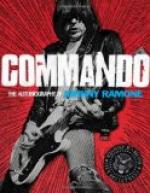From Dewetsdrift we went, under Commandant Boshoff, to Schoemansdrift, Venterskroon, and Lindequidrift. Our division formed part of the escort for the guns. Our route lay through beautiful scenery. The Vaal twists and bends between two high mountains that curve on either side like the roads the khaki makes with his double row of waggons over the hills of the Hoogeveld. In every opening of the mountains lies a farm, a mean little house, but among well-cultivated fields. In nearly every farm the family was grieving for one of its members who had been taken prisoner along with Cronje, and of whose fate they were in ignorance. The people received us very kindly. Everywhere we got milk and biscuits, and we found afterwards that those people were the kindest who had suffered the most from the war.
As the enemy were already on their way to Johannesburg, we had to retreat as rapidly as possible, first to Bank Station, near Potchefstroom, and then by train to Langlaagte. To the north-west of Johannesburg we had a skirmish with the enemy, who attacked us as we were feeding our horses. It appeared that our guard was not on duty. I have never seen horses saddled so quickly. Most of the burghers rode off and left us behind with the guns. One ammunition waggon stuck in the mud, and was left behind, but was brought in safety to Pretoria by Frans Lottering, a comrade of mine, who rode back for it with some gunners when we had fled. Lottering was given a sword by General de la Rey for his brave conduct. Through negligence on the part of our officers we lost on that occasion one gun, several waggons, and some of our men.
Almost all night long we retreated with our guns to Pretoria. We had not lost courage. We all spoke of the thorough way in which our Government would have fortified Pretoria, and of the great battle that would take place there. We had all made up our minds to a stubborn resistance at our capital. What a bitter disappointment it was to find that our Government had decided not to defend the town! The causes that led to such a decision will be brought to light by historians. The consequences were that many of the burghers were discouraged, and rode ‘huis-toe,’ and nothing came of the great battle that was to have been fought.
Frits and I decided to give our horses a few days’ rest in their stables before going to meet the enemy.
On June 4, at about twelve o’clock, while we were at luncheon, a lyddite bomb fell close to the fort, raising a cloud of dust. My mother went outside, and came back quickly to tell us that it was not a shot from the fort, but from the enemy. The bombs followed in quick succession. They flew over Schanskop fort, and fell close to our house at Sunnyside. As the ground was rocky they exploded well. My mother and sister fled with our neighbours to the town, and my brother and I saddled our horses and rode off to Quaggaspoort.
From over the mountains, to the south of the town, the bombs came flying as a gentle warning from the khakies that it would be better to surrender in order to avoid a great calamity.




